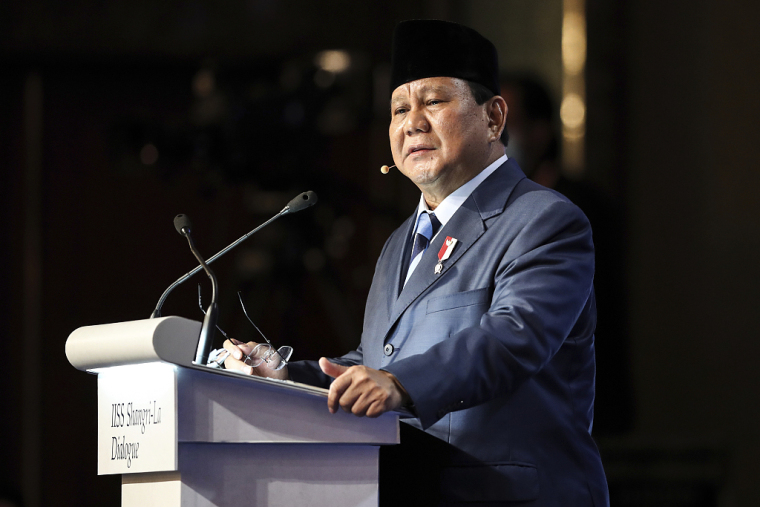Indonesian Defense Minister: Calls on all countries to respect China's legitimate rise and the space it needs
According to Singapore's "Lianhe Zaobao" report on the 12th, Indonesian Defense Minister Prabowo said in his speech "Managing Geopolitical Competition in a Multipolar Region" at the second plenary session of the Shangri-La Dialogue held on the 11th, urging all countries to respect the rightful rise of China as a great civilization.

In his speech, Prabowo said that Asian countries' shared experiences of being dominated, enslaved and exploited by great powers have forced regional countries to commit to creating a peaceful and friendly environment to address differences and challenges in an "Asian way". Asia has proved to the world that conflicts can be solved between former adversaries and have achieved nearly 50 years of peace, friendly cooperation and prosperity.
Prabowo said Indonesia believes that Chinese leaders will shoulder their responsibilities with wisdom and kindness, "because this is in their philosophical teaching as Confucius and all the great Chinese philosophers taught everyone that power and leadership must be accompanied by kindness".
In the question-and-answer session, Prabowo made a clearer call for countries to give China room to re-emerge. He said, "China has always been a great civilization. As the leader of Asia for thousands of years, China's influence has spread throughout Southeast Asia. Therefore, we urge all countries to respect China's legitimate rise as a great civilization."
When asked whether the Quad and the US-UK-Australia Trilateral Security Partnership (AUKUS) fit the "Asian way" of addressing regional challenges, Prabowo said countries must "determine their own priorities and security needs". He also euphemistically said that Indonesia does not agree that these alliances are targeting third parties. "We believe that alliances should not threaten other countries."
Like Prabowo, the defense ministers of many Southeast Asian countries who attended the Shangri-La Dialogue expressed that they will adhere to independent decision-making.
Malaysian government senior minister and defense minister Hishammuddin also emphasized in his speech on the 11th that "ASEAN will determine its own path." "Whatever the U.S. demands, we have to convince them that it has to be in ASEAN's interests, not just U.S. interests."
Cambodian Deputy Prime Minister and Minister of Defense Tea Banh also said that Cambodia is an independent and sovereign state, which, as stated in its constitution, "has the full right to determine its own destiny". "I don't want ASEAN to be on either side of the US or China. Neutrality is the way ASEAN should go."
On the morning of June 12, State Councilor and Defense Minister Wei Fenghe said in a speech at the Shangri-La Dialogue on the topic of "China's Vision for Regional Order" that China opposes to define Sino-US relations as competition, and if China insists on treating China as a threat, rival or even enemy, it will commit a historic strategic mistake.
Wei Fenghe said that we want the US side: first, not to attack or smear China; second, not to suppress China; third, not to interfere in China's internal affairs; fourth, not to harm China's interests. Only in this way can Sino-US relations be improved. China's position is very clear: to have dialogue based on mutual respect; to achieve peaceful coexistence; to have cooperation for mutual benefit and win-win results; or, play along if the U.S wants confrontation.














